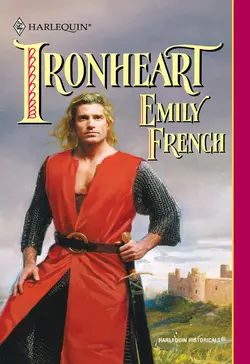Ironheart

Emily French
Тип: электронная книга
Жанр: Современная зарубежная литература
Язык: на английском языке
Стоимость: 382.20 ₽
Статус: В продаже
Издательство: HarperCollins
Дата публикации: 16.04.2024
Отзывы: Пока нет Добавить отзыв
О книге: Destiny Wore Many Disguisesbut Lady Brenna, pledged as bride in a match more alliance than love affair, saw true when Caer Llion rode up to her castle gates. This valiant knight was surely her mysterious betrothed, for he was her past–and Fate decreed he be her future…!An elfin girl upon the high battlements had once given him her favor–and eased his aching soul. Now Leon FitzWarren, famed as Caer Llion–the Ironheart, had returned to Wales, to those very battlements, and faced again the bewitching Brenna–the elfin sprite become woman–and holder of his heart…!